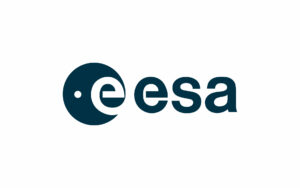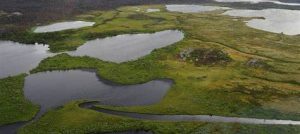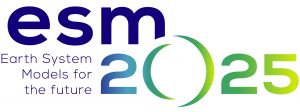ONGOING PROJECTS

ESA-funded Climate Space RECCAP-2 project refines greenhouse gas budgets for critical regions of the globe, supporting climate goals with advanced satellite and atmospheric data.
This project exploits Earth observation data to generate more accurate and improved greenhouse gas (GHG) budgets for key land regions where uncertainties remain significant. Four regions crucial to the global carbon budget have been selected for study: Europe, Siberia, the Amazon, and the Arctic.

iC3 (Centre for Ice, Cryosphere, Carbon and Climate) is Norwegian Centre of Excellence for Outstanding Research that brings together world-leading experts with the aim of filling a vital knowledge gap in polar science by quantifying impacts of ice sheet change on Earth’s carbon cycle and sensitive ocean ecosystems.

OPERANDI - FNRS fellowship
Enhanced Silicate Weathering (ESW) is a negative emissions technology which seeks to accelerate the process of natural mineral weathering, thereby adding alkalinity to the ocean and increasing its capacity for CO2 uptake. Coastal marine settings are a promising area for deployment due to their large surface area and high weathering rates due to microbial activity. However, the net effect of deployment in coastal sediment remains unknown, as secondary mineral precipitation has the potential to consume added alkalinity before it reaches the water column. Project OPERANDI uses a model-based approach combined with existing field data to assess the efficiency of ESW deployment in coastal marine settings, and to identify optimal deployment strategies.

UNCORK - FNRS fellowship
Subsea permafrost stores vast quantities of frozen organic matter, preserving it from decomposition. Under global warming, thawing rates will accelerate, increasing the production of greenhouse gasses like CH4 and CO2 and the recycling of nutrients. Project UNCORK combines experimental and modeling approaches to better understand microbial dynamics in the thawing environment and improve predictions of subsea permafrost-driven carbon and nutrient emissions from the Arctic seafloor in the coming centuries.

CH4-Lakes
Methane emissions from global lakes and their response to climate and environmental change: Addressing a major knowledge gap in the global CH4 budget is a FNRS-funded "Projet de Recherche" (PDR).
CH4-Lakes aims to quantify the contribution of lakes to the global methane budget and its evolution from the historical period to the 21st century (1860-2100). Specifically, we will provide a new global-scale quantification of seasonally-resolved diffusive and ebullitive lake methane emissions as well as the first assessment of temporal trends in CH4 emissions in response to global change. The project results will be integrated in the CH4-budget of the Global Carbon Project and will provide the solid knowledge base required to make informed policy decisions.

DE-HEAT BELSPO
Facing climate change is a societal challenge, and calls for ambitious, transformative, and collective action. To keep global warming below 2°C, we will need to rely on negative emission technologies (NETs). A promising NET approach is Enhanced Silicate Weathering (ESW). ESW makes use of the natural weathering reaction, whereby silicate dissolution consumes atmospheric CO2. DE-HEAT will assess the efficiency of marine ESW in stimulating oceanic CO2 uptake by increasing alkalinity and evaluate its environmental impact, by applying an innovative fully integrated approach combining extensive field campaigns with state-of-the-art numerical models.
ESM2025 Earth system models for the future - H2020 European Project.
An ambitious European research project on Earth System modelling that will build a novel generation of Earth system models fitted to support the development of mitigation and adaptation strategies in line with the commitments of the Paris Agreement.

NANOK An untypical triathlon across Greenland wilderness.
Beyond the sport challenge, two belgian adventurers collaborate with scientists for climate research.
Along this traverse, they will collect snow samples that will be use to better understand the link between atmospheric deposition and the development of algal bloom that darkens the ice surface and contribute to accelerate the melting of the ice sheet. A secondary objective is to trace the provenance of the dust deposited over Greenland ice sheet. Among other support, the expedition is supported by a Credit de Recherche from FNRS.
Know more about the scientific project
Contribute to the expedition
TropSEDs - Tropical Soil Erosion Dynamics: Unraveling the roles of climate and land-use on the erosional transfer of carbon from source to sink through time in the Kasai Basin
CANOE BELSPO
Fjords are Aquatic Critical Zones of regional and global importance by supporting highly productive and diverse food webs, while they play an important role as CO2 sinks. At the same time, global warming significantly impacts these systems through the accelerated melting of ice. Especially fjords in Greenland are sensitive to the effects of global warming. Here, like in other polar areas, coastal glaciers either terminate in the fjord (= marine-terminating glaciers; MTGs) or on land, resulting in proglacial rivers draining to the fjord (= land-terminating glaciers; LTGs).

C cyling in seagrass meadows FNRS fellowship.
Seagrass meadows are hotspots for carbon (C) sequestration, form an essential part of the Earth’s blue C sink, and thus, exert a profound impact on the global C cycle. However, their full C storage potential, its impact on the global C cycle, as well as its response to global change currently remain poorly understood and quantified. The ultimate goal of this project is thus to advance blue C research by generating the quantitative mechanistic understanding and new tools required to elucidate how global change influences C cycling and sequestration in coastal seagrass meadows.
ReCAP: Regional-scale assessment of the land-ocean Continuum ecosystems vulnerability to Anthropogenic Pressure
COMPLETED PROJECTS
ChAOS (The Changing Arctic Ocean Seafloor) is a NERC large research project in the framework of the Arctic Ocean program. The overall goal of ChAOS is to quantify the effects of changing sea ice cover on the Arctic seafloor.

CuIRASS (Carbon-Iron ASSociation) is a FNRS-funded "Projet de Recherche" (PDR) who aims at elucidating the role of iron biogeochemistry in the stabilisation of carbon in fjords sediments.

FIESTA (Full Benthic Environmental Impact of MEthane gaS HydraTe DissociAtion on Decadal to Millenial Timescales) is a FNRS-funded "Projet de Recherche" (PDR).
The overall goal of FIESTA is to improve radically our quantitative understanding of the benthic CH4 sink and benthic carbon cycle-climate feedbacks in response to methane gas hydrate dissociation caused by temperature and sea-level perturbations on decadal to millennial timescales.
NuttI (Nutrient Factories under the Ice) is an Actions de Recherche Concertée (ARC) project whose aim is to quantify the subglacial biogeochemical reactor and its response to climate change.
NUNATARYUK is a EU Horizon 2020, BG-2017-1 project. The overall goal of Nunantaryuk is advance the quantitative understanding of the fluxes and fat of organic matter released from thawing coastal and subsea permafrost, assess its socio-economic risks and estimate the long-term impacts of permafrost thaw on global climate and the economy.
VERIFY is an international, multidisciplinary project targeting the implementation of an observation-based system for monitoring and verification of greenhouse gases (GHG).
Benthox project aims at developing appropriate assessment tools and methodologies to better understand the mechanisms behind hypoxia and the impact of hypoxia on the status of the benthic ecosystem and biogeochemical cycling.
SWEET (Super-Warm Early Eocene Temperatures and climate: understanding the response of the Earth system to high CO2 through integrated modelling and data), we will reconstruct the warmth and drivers of the “early Eocene”, and use this to test a state-of-the-art climate model, and gain an understanding of the climate processes that led to the warmth.
C-CASCADES has produced a new generation of young scientists trained to span the boundaries between disciplines and with the skill-sets required to address one of the grand research challenges of the 21st century: the role of the carbon cycle in regulating Earth’s climate.
SAT–EX had the goals of revealing how droughts, heatwaves and extreme rain events have changed in frequency and intensity over the past three decades, to uncover the causes behind these changes and the consequences for terrestrial vegetation.
PISCES: Our goal was to investigate the impact that the melting glaciers of the Patagonian Ice Field are having on fjord and marine productivity.












